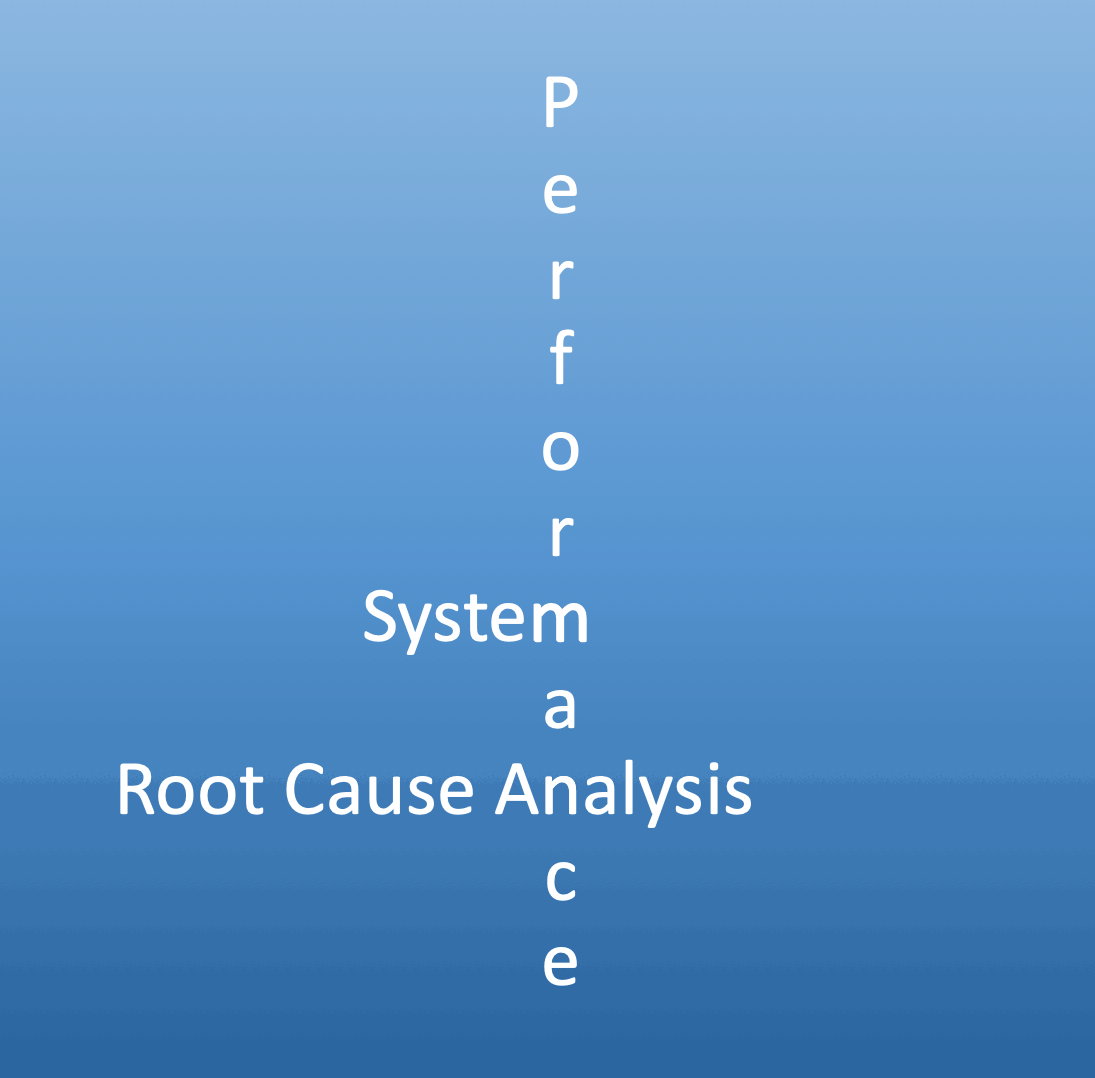Systems & Root Cause Analysis

System – Root Cause Analysis – Performance Improvement
What does the word “system” have to do with root cause analysis?
And how does the combination of system and root cause analysis lead to performance improvement?
Read on and find out!
Definition of a System
First, let’s define a system…
Paul Fitts, a human factors expert, defined a system as:
“..An assemblage of elements that are engaged in the accomplishment of some common purpose(s) and are tied together by a common information flow network, the output of the system being a function not only of the characteristics of the elements, but of their interactions or interrelationships.”
If the Ph.D. definition seems a little complex, try something more straightforward. Here is a definition in Webster’s Dictionary:
an organized or established procedure : METHOD
Or you might like the definition of systematic:
methodical in procedure or plan : marked by thoroughness and regularity
Thus, a systematic process is planned, proceduralized, organized, consistent, and regular.
The outcome of a systematic process is known in advance. It can be predicted. Thus, success is assured.
Systems and TapRooT® Root Cause Analysis
What do systems have to do with TapRooT® Root Cause Analysis and performance improvement?
COMMON CHARACTERISTIC 1:
The TapRooT® Root Cause Analysis IS a systematic process to find root causes. Therefore, it is proceduralized, organized, and consistent when used by different investigators.
You might think this is true of all root cause analysis tools, but that would be wrong. Most root cause analysis tools are based on some kind of cause-and-effect brainstorming. These experienced-based troubleshooting techniques are NOT very systematic, consistent, or organized.
Thus, to have this common characteristic of a system (and be repeatable), a root cause analysis tool must be well thought out and overcome a common human tendency to jump to conclusions and to only collect evidence that verifies the investigator’s hypothesis. (This tendency to look for what you want to find is called “Confirmation Bias.” Read more about it HERE.)
The TapRooT® Software adds to the systematic process of finding and fixing root causes by making the system easier to use (for example, by providing easy access to the definitions in the Root Cause Tree® Dictionary that make root cause analysis terminology consistent) and by providing a systematic way to develop corrective actions by using the Corrective Action Helper® Module.
COMMON CHARACTERISTIC 2:
The TapRooT® Root Cause Analysis System looks for weaknesses in the way we perform work to find root causes. This is essentially examining the way work is done to look for a lack of systematic processes or weakness in systematic processes.
Another way to think of this is that TapRooT® helps you search for missing knowledge or best practices that would help your systems be more reliable. This is why we developed the modern root cause analysis definition:
ROOT CAUSE
The absence of a best practice
or the failure to apply knowledge
that would have prevented the problem.
The TapRooT® Root Cause Analysis System examines typical “work systems.” For example:
- Procedures
- Training
- Quality Control
- Management Systems
- Preventive/Predictive Maintenance
- Work Direction
- Communication
- Human Engineering
Even a process like communicating verbally can be observed for weaknesses in the “system” of communication.
We can systematically review the way work is performed and find “error likely situations” or “human error traps” that lead to problems and poor performance.
By spotting problems and recommending improvements, we can recommend better, well thought out, systematic processes to perform work and achieve superior, consistent, predictable results. This leads to PERFORMANCE IMPROVEMENT.
Systems – The Heart of Root Cause Analysis & Performance Improvement
“Systems” are at the heart of root cause analysis and performance improvement. Systems make root cause analysis better and, thus, make performance improvement reliable. (That is why we named our company “System Improvements.”)
Without a systematic process, performance improvement is just brainstorming and trial and error. You just keep trying “stuff” until you think that something works.
Learn more about SYSTEMS and ROOT CAUSE ANALYSIS
Where is one of the best places to learn about systems? Kevin McManus’ website: Great Systems!
Where is one of the best places to learn about systematic root cause analysis? A TapRooT® Root Cause Analysis Course! See the upcoming dates and locations around the world at:
Seats in TapRooT® Courses are limited. Pick a place where you would like to attend the training and REGISTER NOW!




